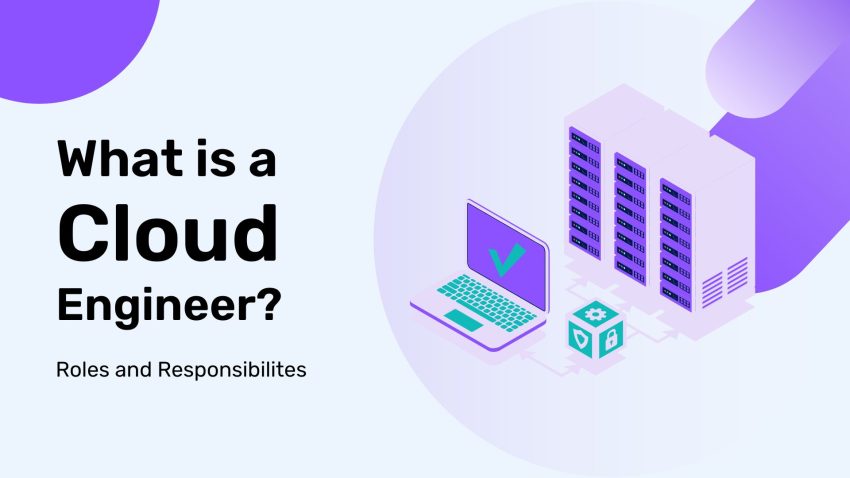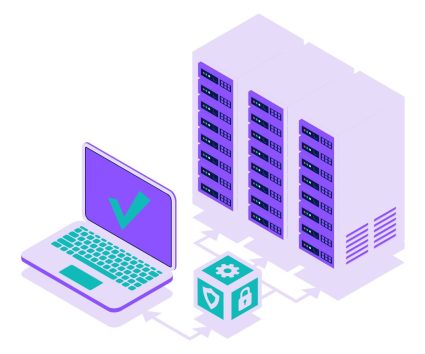What Is a Cloud Engineer?

What Is a Cloud Engineer?
Cloud engineering is the practice of designing, implementing, and maintaining software systems that operate effectively in cloud computing environments. It’s a growing field with many sub-disciplines that focus on one aspect of cloud engineering or another.
Cloud engineers need to understand the various elements of a cloud environment as well as have knowledge about how to build software that takes advantage of those elements.
In this blog post, we’ll give you a general overview of what it takes to become a cloud engineer. Plus, we’ll provide you with some helpful resources for training and landing your first job as a cloud engineer. Let’s get started.
What Does A Cloud Engineer Do?
Cloud engineers are responsible for ensuring that the applications they design run efficiently and effectively in cloud computing environments. This includes designing and building those applications as well as managing and monitoring the environment they run in.

Depending on the company and the role, you may be responsible for developing software using particular enterprise software development methodologies and best practices. Cloud engineers typically work in agile teams, so collaboration is important.
Cloud engineers may also perform project management and other general engineering functions, such as DevOps and testing. This includes automating delivery processes and maintaining the continuous integration and continuous deployment (CI/CD) pipelines.
They may also be responsible for managing cloud-based systems that organizations use to store and access data and perform other computing tasks. Their work may involve designing and maintaining virtual networks that connect the systems that perform these tasks.
Responsibilities of a Cloud Engineer
Cloud computing is a dynamic field, and the responsibilities of cloud engineers change frequently. A successful cloud engineer is someone who can quickly adapt to changing demands and stay on top of current technology.
Here are just some of the responsibilities that come with being a cloud engineer:
Key Skills For Cloud Engineers
Cloud engineers must have a thorough understanding of software development, computer science, internet architecture, and databases. Here are some of the other key skills for cloud engineers.
A successful cloud engineer must be able to manage operational risk as well as understand business risk and strategy. This is a fast-paced job that requires constant learning, innovation, and problem-solving skills.
Networking: The backbone of cloud engineering
As mentioned above, networking is a key skill for cloud engineers. Knowing how to build and maintain the networks that transport data throughout your systems will help to improve performance and reduce risk.
Networking is an ever-changing field, and you’ll need to stay on top of trends and developments in order to stay relevant. It’s essential for cloud engineers to keep up with new developments and technologies in the industry.
You will likely need a degree in computer science or cloud engineering. Some of the most in-demand skills include programming (Python, Java, etc), service products (Docker), and software engineering.
Cloud engineers often use open source software, so familiarity with some of these projects can be helpful. But you need to be familiar with cloud platforms, such as Amazon Web Services (AWS), Microsoft Azure, or Google Cloud Platform (GCP).
Big Data: Knowing what’s happening in your cloud
As data becomes an increasingly important part of cloud computing systems, being able to understand and manipulate it becomes critical. This is especially true for people building and deploying machine learning and artificial intelligence (AI) systems.
READ MORE: 100 Applications of AI and Machine Learning
A good cloud engineer understands how to manipulate data, such as sorting and filtering it based on certain parameters or algorithms. They also understand how to store data in an appropriate manner. A good cloud engineer should also understand how to make data available to people who need it.
This includes understanding how to query databases and expose data in a format that people can use. It may also involve gaining insights from the data that your systems collect. This may include using data analytics to derive meaningful insights from the data you collect.
Conclusion
Cloud engineering is an ever-changing field that requires engineers to keep up with current trends and new technologies. It’s important to have a solid understanding of how to design, build, and maintain cloud computing systems.
It’s also important to understand the data that flows through these systems and how it is stored. Although cloud engineering is a growing field, it’s important to choose a direction that aligns with your interests and career goals.
You can begin by researching sub-disciplines within cloud engineering. From there, you can identify skills you need to develop and ways to get experience in the field.

Related Cloud Computing
3 Must-Have Skills for a Cloud Computing Career
What Is a Cloud Engineer?
A Gentle Introduction to Cloud Computing
SaaS vs PaaS vs IaaS – What’s the Difference?